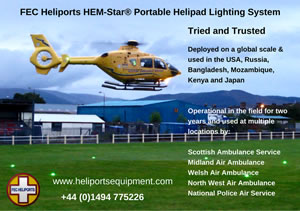Boeing Defense, Space & Security2009-02-02 14:09:21
Boeing Successfully Completes Flights of 2 Wedgetail AEW&C Aircraft Modified in Australia
The Boeing Company [NYSE: BA] has conducted successful functional check flights of two 737-700 airborne early warning and control (AEW&C) aircraft modified in Australia for Project Wedgetail.
During each of the 2.5-hour flights on Jan. 21 and 28 from Royal Australian Air Force (RAAF) base Amberley, pilot Doug Benjamin and first officer Ed Wilson performed a series of functional tests that verified the airworthiness of the aircraft's systems and structures.
The flight followed major aircraft modifications performed by Boeing Defence Australia at Amberley, including the installation and checkout of an advanced Multi-role Electronically Scanned Array (MESA) antenna, ventral fins and mission system equipment.
"These successful functional check flights demonstrate the significant capability we have here in Amberley to execute the complex modification work required to transform a 737 airplane into an AEW&C platform," said Wayne Needs, vice president and general manager for Boeing Global Services & Support, Australia.
The two aircraft will be painted with RAAF markings over the next few weeks. Boeing will finish installing mission system equipment on both aircraft and conduct a series of ground checkouts later this year.
The Wedgetail program includes six 737-700 AEW&C aircraft plus ground support segments for mission crew training, mission support and system maintenance. Three aircraft are currently in modification at Amberley while the other three are being flight-tested at Boeing's facility in Seattle.
The 737-700 features 21st century avionics, navigation equipment and flight deck features. Because of its advanced technology, the aircraft requires minimal downtime for maintenance. The 737 series has a worldwide base of suppliers, parts and support equipment.
The modified AEW&C aircraft features Northrop Grumman's MESA antenna with integrated identification friend-or-foe capabilities; a flexible, open architecture for cost-effective future upgrades; an extensive communications suite; and aerial refueling capability.
The Boeing Company [NYSE: BA] has conducted successful functional check flights of two 737-700 airborne early warning and control (AEW&C) aircraft modified in Australia for Project Wedgetail.
During each of the 2.5-hour flights on Jan. 21 and 28 from Royal Australian Air Force (RAAF) base Amberley, pilot Doug Benjamin and first officer Ed Wilson performed a series of functional tests that verified the airworthiness of the aircraft's systems and structures.
The flight followed major aircraft modifications performed by Boeing Defence Australia at Amberley, including the installation and checkout of an advanced Multi-role Electronically Scanned Array (MESA) antenna, ventral fins and mission system equipment.
"These successful functional check flights demonstrate the significant capability we have here in Amberley to execute the complex modification work required to transform a 737 airplane into an AEW&C platform," said Wayne Needs, vice president and general manager for Boeing Global Services & Support, Australia.
The two aircraft will be painted with RAAF markings over the next few weeks. Boeing will finish installing mission system equipment on both aircraft and conduct a series of ground checkouts later this year.
The Wedgetail program includes six 737-700 AEW&C aircraft plus ground support segments for mission crew training, mission support and system maintenance. Three aircraft are currently in modification at Amberley while the other three are being flight-tested at Boeing's facility in Seattle.
The 737-700 features 21st century avionics, navigation equipment and flight deck features. Because of its advanced technology, the aircraft requires minimal downtime for maintenance. The 737 series has a worldwide base of suppliers, parts and support equipment.
The modified AEW&C aircraft features Northrop Grumman's MESA antenna with integrated identification friend-or-foe capabilities; a flexible, open architecture for cost-effective future upgrades; an extensive communications suite; and aerial refueling capability.
For more information contact:
P.O. Box 516
St. Louis
MO 63166
United States Of America
Tel: +1 206 655 2121
Fax: +1 (61) 295 014 489
